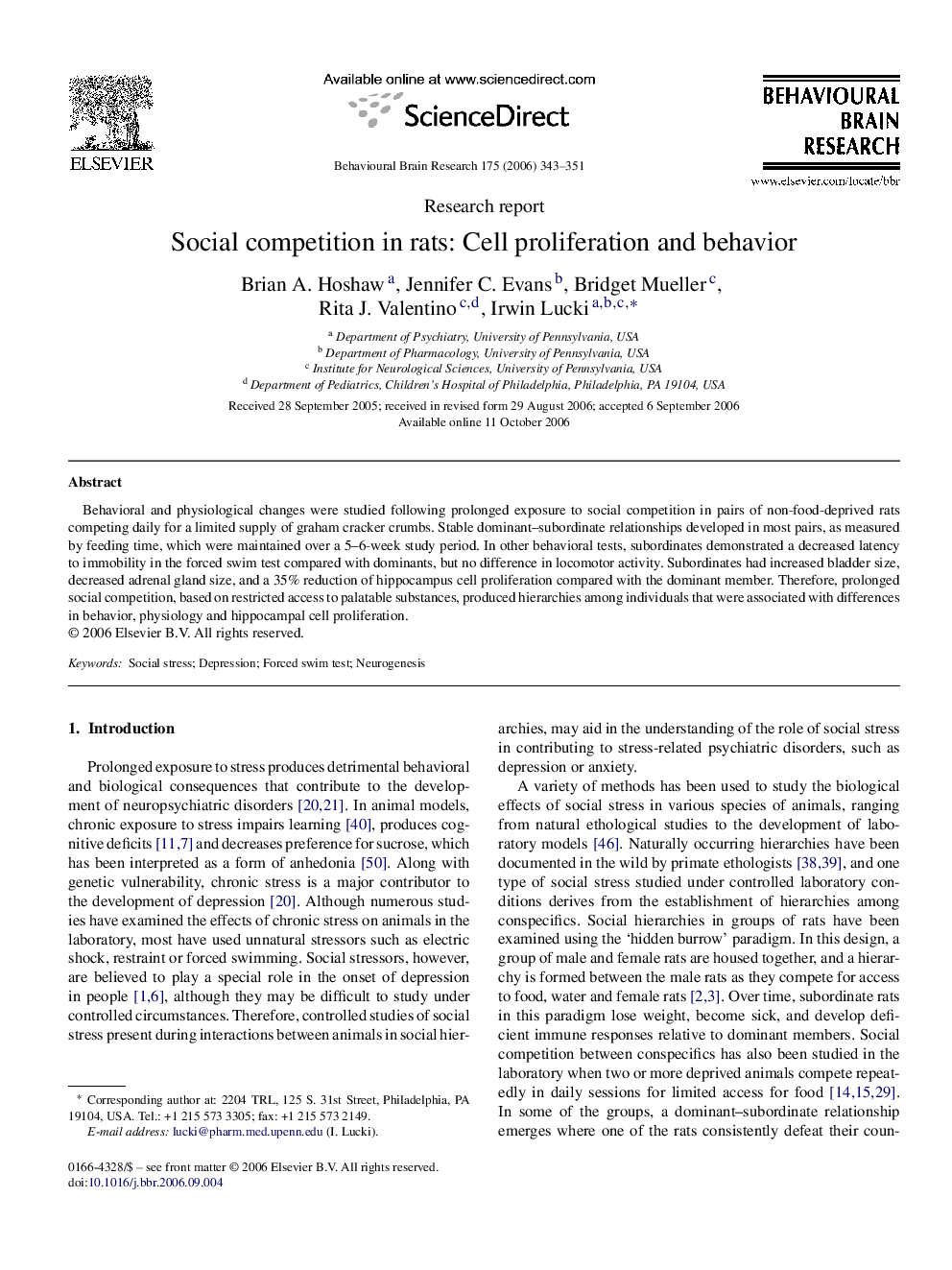| Article ID | Journal | Published Year | Pages | File Type |
|---|---|---|---|---|
| 4315905 | Behavioural Brain Research | 2006 | 9 Pages |
Behavioral and physiological changes were studied following prolonged exposure to social competition in pairs of non-food-deprived rats competing daily for a limited supply of graham cracker crumbs. Stable dominant–subordinate relationships developed in most pairs, as measured by feeding time, which were maintained over a 5–6-week study period. In other behavioral tests, subordinates demonstrated a decreased latency to immobility in the forced swim test compared with dominants, but no difference in locomotor activity. Subordinates had increased bladder size, decreased adrenal gland size, and a 35% reduction of hippocampus cell proliferation compared with the dominant member. Therefore, prolonged social competition, based on restricted access to palatable substances, produced hierarchies among individuals that were associated with differences in behavior, physiology and hippocampal cell proliferation.
